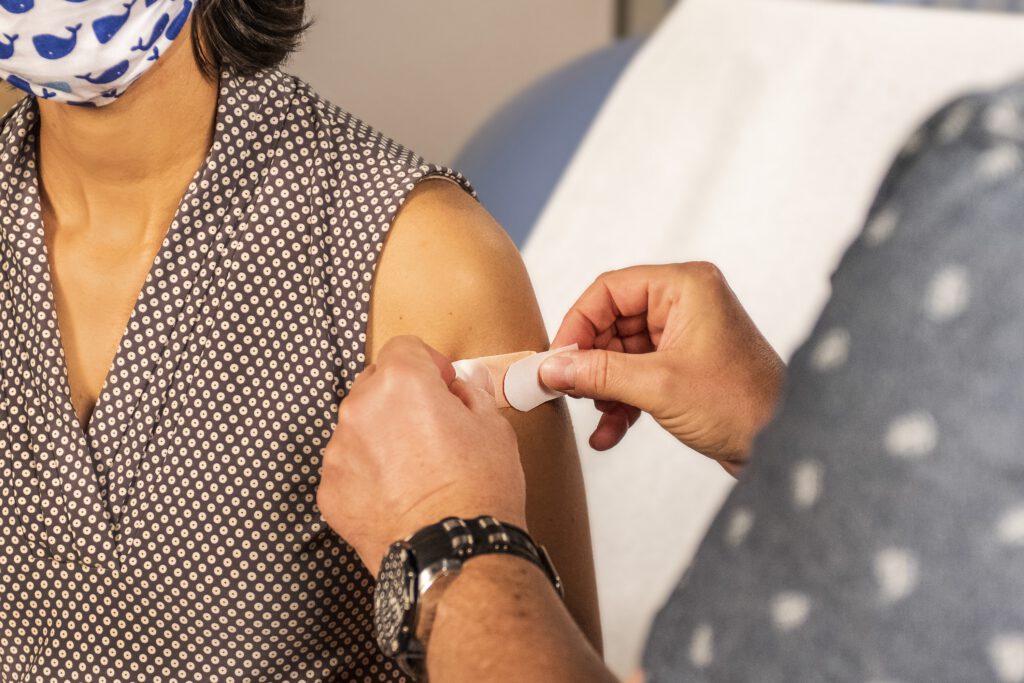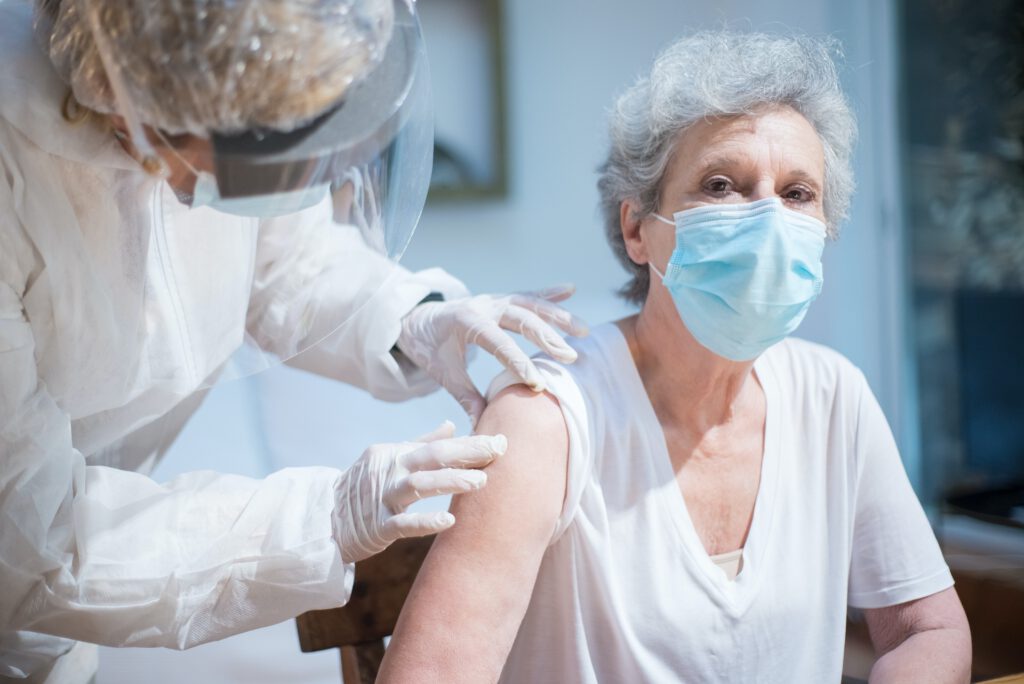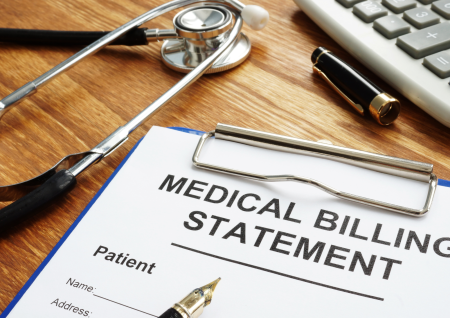Vaccinations in Germany
Vaccines are some of the most effective preventive measures to protect against infectious diseases. Although they are not compulsory in Germany (with one exception that you will find later in this article), all health authorities strongly recommend it.
The Standing Commission on Vaccination (STIKO) at the state-run Robert Koch Institute decides which vaccinations are recommended in Germany. The Federal Ministry of Health (Bundesministerium für Gesundheit) appoints the members of STIKO, who are primarily doctors from university hospitals. The current and up-to-date recommendations on vaccinations are always available on the website of the Robert Koch Institute, which is also available in English.

Is it compulsory to be vaccinated in Germany?
If you recently moved to Germany and are planning to start a family in the country, you should be informed about the vaccines that you and your children may need.
As we mentioned before, unlike other European countries, there is no compulsory vaccination in Germany. However, there is one exception to the rule: the measles vaccination. The Measles Protection Act, which came into force on March 1, 2020, is intended to provide school and kindergarten children with effective protection against measles. However, regardless of this, it is important to educate people about the importance of vaccination and to make vaccination easily accessible to all citizens.
Having said this, the Federal Ministry of Health and the Robert Koch Institute recommend the following vaccinations for all citizens living in the country:

Vaccine recommendations for children and adolescents in Germany
- Diphtheria
- Tetanus
- Poliomyelitis (polio)
- Haemophilus influenzae type B (Hib)
- Pertussis (whooping cough)
- Hepatitis B
- Measles, mumps, rubella (MMR)
- Chickenpox
- Rotavirus, pneumococcal infection
- Meningococcal C infection
- HPV (human papillomavirus)
Booster vaccinations for adults in Germany
Booster against diphtheria and tetanus (recommended every ten years)
Booster against measles (people over the age of 18 who were born after 1970 and are unsure of their vaccination status, have not been vaccinated, or have received only one vaccine as a child).
Vaccine recommendations in Germany for people over the age of 60
- Influenza
- Pneumococcal infection
- Herpes zoster (shingles)
- Further vaccinations for unvaccinated adults after consultation with a doctor


The COVID-19 vaccine
The introduction of a mandatory vaccination program for the entire population in Germany was heavily debated, but it was unsuccessful in the German parliament’s Bundestag. When it comes to making COVID-19 vaccinations a requirement, Germans place a high value on self-determination and freedom of choice. According to a survey that was carried out, 63 % of Germans agree that vaccinations are a matter of personal autonomy that the state cannot interfere with, even during a pandemic. However, the majority of the German population is vaccinated against COVID-19: 78 % of people have received at least 1 dose and 76.4 % of Germans are fully vaccinated.
The vaccination record or Impfpass
The vaccination record, also known as the Impfpass, is a yellow booklet that is given to you after you are vaccinated for the first time in Germany. This booklet contains a record of all your vaccinations, making it easier for you to keep track of all your vaccines.
In addition to the vaccination record, you can get a second record book for your children (also known as a Kinder-Untersuchungsheft) for pediatric medical examinations. All of your child’s medical check-ups and assessments will be recorded in this booklet up until the age of six. You receive this booklet shortly after delivery.


Who covers the cost of vaccines?
The statutory health insurance funds in Germany (GKV) spend about 1.4 billion euros annually on vaccinations (as of 2017, according to the Federal Ministry of Health). Therefore, people who have statutory health insurance are entitled to the vaccinations that are recommended in Germany at no additional cost.
If you’d like to find out more about your health insurance coverage and how you might be able to optimize it, our team of experts will be happy to advise you. Contact us here!
Vaccines are extremely efficient not only because they provide individual protection, but also because they lead to herd immunity, protecting a large part of the population against diseases.
We hope that you found this article useful and it helped you learn more about vaccination in Germany. We must never forget that countless deaths are prevented worldwide thanks to vaccines, so we should stay protected!

How to Save Money with Private Health Insurance in Germany
If you’re living and working in Germany, you probably know that you’re legally required to have health insurance. But what many people don’t realize is

Retirement in Germany for Expats: Understanding Pensions and Insurance
Germany is becoming an increasingly popular destination for retirees from around the world. With its high-quality healthcare system and strong, stable economy, it offers a

Understanding Car Insurance in Germany: A Comprehensive Guide
Whether you’ve just moved to Germany or have been living here for a while, understanding how car insurance works is essential. It’s not only a

What is the Steuernummer in Germany? A Guide for Expats
Moving to a new country as an expat comes with a lot of paperwork, and one essential number you’ll encounter in Germany is the Steuernummer. Understanding

Life Insurance for Expats in Germany: Protect What Matters
Life insurance is an important financial tool that ensures long-term security for your loved ones. For expats, understanding life insurance can be more complex due

8 Common Insurance Mistakes in Germany: A Guide for Expats
When moving to Germany, expats often face the challenge of navigating a completely different insurance landscape. Choosing the right health insurance is crucial, but with
